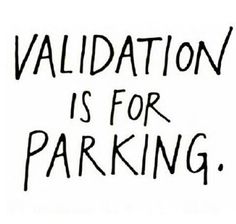Part of my burnout experience was feeling used up because I had given everything I had to my business.
When a rare moment of happiness came about, I wasn’t sure if I was beginning to feel better, or if I was just getting used to feeling like crap.
I felt guilty because I had created a business that was successful and doing very well. When people offered their compliments and high-fives to acknowledge my success, I was anything but enthused.
I was drained, had absolutely no energy, and felt incredibly sad and insecure.
I had built a business on something I was passionate about: dogs.
Prior to this period, dogs made me happy, feel loved, and loving them back made me feel fulfilled.
The fact that dogs – my once reliable go-to serotonin boost – now just made me feel anxious and stressed.
Reduce the noise that chronic stress is making in your head with The Burnout Recovery Method.
To this point, everything about this business had been hustle, hustle, hustle. My inexperience and self-doubt made me feel like I was drinking out of a fire hose trying to learn everything and come up with all of the right answers.
At the core of this, I had a lot of self-sabotaging behaviors. (Like people pleasing and perfectionism.) To add to the fun, I was always chasing new achievements, hoping to experience that elusive feeling of being truly “enough” and truly “successful.”
The Desire for Validation
As a people pleaser it’s not a shock that I would have been looking for external validation, and my internal validation well was non-existent. A people pleaser’s natural reflex is to seek validation from others when we are not sure about our decision, a constant feeling of self-doubt lingers in our mind.
The bigger problem I had was that I believed the ultimate Hustle Culture lie that success is the secret sauce to feeling complete, accomplished, and enough – instead of figuring out what would actually make me feel this way based on my own needs, dreams, and priorities.
It’s exhausting and disappointing to base one’s identity on their accomplishments. And, it’s devastating to think you’re only as good as your last achievement.
Why Do You (and I) Keep Moving the Goalposts to Feeling Like Enough and Successful?
A lot of entrepreneurs and leaders are naturally driven people at the core of their personality. We possess an insatiable desire to achieve more, be better, and do extraordinary things.
We have been conditioned to believe that success – usually in the form of money and material goods – will make us happy. And, just like all humans, our ultimate desire is to be happy.
So, we end up slowly deprioritizing happiness under the desire to be successful.
Humans are terrible at forecasting pre-goal fatigue versus post-goal reframing.
We have little to no awareness of our own energy expenditures. As entrepreneurs and leaders this means we often go full force (or, as I am often heard saying – balls to the wall) into whatever we are attempting.
We expect to feel inspired and energized by our accomplishment, only to end up feeling empty.
Then, we immediately begin to think, “I’ll feel fulfilled when I [ insert next big goal here.]”
You never seem to get to the point where you feel like you’re enough or you’ve done enough.
Wearing Multiple Hats Disconnects You from Feeling Like You’ve ‘Arrived’
The other part of this, I think, is that it’s hard for entrepreneurs and leaders to create a stable sense of professional identity because we take on so many roles within our business.
We’re HR, we’re accounting, we’re customer service, we’re marketing…
Each of these identities has different goals and take varying amounts of energy and time.
The constant trade-off between your multiple roles may leave you feeling incomplete, not leave you any time to celebrate a win, or make you feel like a failure if it’s not a skill you do well.
In our blinding pursuit of validation – we’ve lost track of what we actually need validated.
Mix in comparing yourself to other entrepreneurs and leader you consider successful, and your sense of identity has totally disappeared.
Because you are always chasing something it is going to feel impossible to ever feel like you’re enough or that you’ve “arrived.”
This Is Not Just How It Is or Supposed to Be
There are actually other ways to be an entrepreneur, business owner, and leader without giving over your entire identity, sense of self-worth, and life to your business.
( GASP! )
You can create a concrete finish line that allows you to savor your wins, your authenticity, your needs, and still meets your wildest desires and dreams.
( GASP! GASP! )
You don’t have to power through your day feeling like everything is just beyond your reach.
( GASP! GASP! GASP! )
You can navigate the pull between achievement and happiness.
Opting Out of Your ‘Never Enough’ Cycles
Getting out of these consuming cycles is going to take more than rejecting Hustle Culture with an empowering quote written on a sticky note.
The main idea is to shift from a mindset of perpetual hustle in pursuit of short-lived highs, to one of self-compassion, defining your own version of happiness, and a sustainable lifestyle.
You will need to:
- Refuse to self-sabotage any longer. Take back your power from your daily self-imposed obligations and shifting expectations. Commit to prioritizing your mental, physical, and emotional well-being over any external demands of productivity and achievement.
- Define enoughness on your own terms. Ditch the arbitrary milestones that are supposed to bestow worthiness upon you. Give yourself permission to decide what “enough” means to you and you only. Then, own it.
- Make time and room for internal validation. Start scheduling white space into your calendar to spend some time with yourself. Get to know yourself again. Owning a business and being a leader changes you because you have grown and had opportunities to develop new thoughts and skills.
- Set your goalposts in cement. Rather than endlessly shifting benchmarks of success, pour that energy into mapping your ideal future state. Where do you want your business and lifestyle to be in 1 year? 3 years? Who do you want to be? How do you want to feel and spend your time? Set that trajectory – not empty accomplishment milestones.






